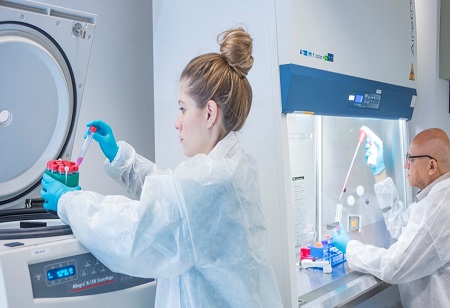Janifha Evangeline

Bristol Myers Squibb in an interaction with India Pharma Outlook shares its views on the current momentum of R&D in developing curative therapies for immune-mediated diseases, the various innovative approaches that can be used to expedite the delivery of curative therapies to the public and more.
How do you see the current momentum of R&D in developing curative therapies for immune-mediated diseases?
Our robust pipeline which spans numerous compounds from early discovery to Phase 3 clinical trials has the potential to bring patients exciting new therapies and will help us meet our long-term vision of delivering sustainable remission and potentially curative therapies for immune-mediated diseases.
What are the scientific challenges associated with the research and development of new therapies for immune-mediated diseases?
Research and drug development is a complex, multifaceted process. On average, it takes at least 10 years for a new medicine to complete the journey from initial discovery to the marketplace Our robust and growing Immunology pipeline spans numerous compounds from early discovery to Phase 3 clinical trials, focusing on insights-based innovation to drive the next wave of immune modulators and precision medicines.
How can it be ensured that the most vulnerable and diverse patient populations are able to access new treatments for immune-mediated diseases?
Our objective is to improve the recruitment of diverse patients in our clinical trials, ensuring that the population reflects the real-world population. Diversity in clinical trials is a scientific imperative. This includes everything from the research sites to the principal investigators, to the extended care teams, and doing so will allow us to strive for permanent changes.
We recently announced our investment in Hyderabad to expand our global drug development and digital innovation capabilities with the creation of a new science and technology innovation center. Our science and research will better reflect the patient populations most impacted by the diseases we treat - ultimately helping to improve treatment and patient outcomes for underserved communities, with narrowing racial gaps as our starting point.
What role does technology play in facilitating the research and development of immune-mediated disease therapies?
Technology can help drive informed clinical decision-making and better experience for patients. Leveraging new data and virtual technology can help enhance study speed, quality, and scale. We are optimizing how we use data and technology and finding ways to stay nimble and innovative. Most importantly, we are always thinking about how tech can help us incorporate patient evidence and data throughout the drug development process.
What innovative approaches can be used to expedite the delivery of curative therapies to the public?
When we talk about innovation and our “3-D” approach, what we are saying is that we use data, design, and digital technologies to address those challenges and build drug development programs that are faster, more targeted, and barrier-breaking. Which is why we are thrilled about our Hyderabad site. This gives us the opportunity to diversify our company globally, which will position us to further accelerate our drug development, bolster our digital innovation capabilities, and advance our mission to discover, develop and deliver innovative medicines that help patients prevail over serious diseases.
What challenges remain in developing successful curative therapies for immune-mediated diseases?
While there has been progress with research and therapeutic options, patients may not respond to available treatments. Many continue to endure chronic symptoms and disease progression that can take a toll on their physical, emotional, and social well-being, making simple tasks and daily life a challenge. As we continuously build and expand our portfolio, our teams work to identify mechanisms that may help the body control inflammation, reset the immune system, and promote balance in the immune response: a three-point approach with the goal of achieving long-term remission and, ultimately, curative therapies.